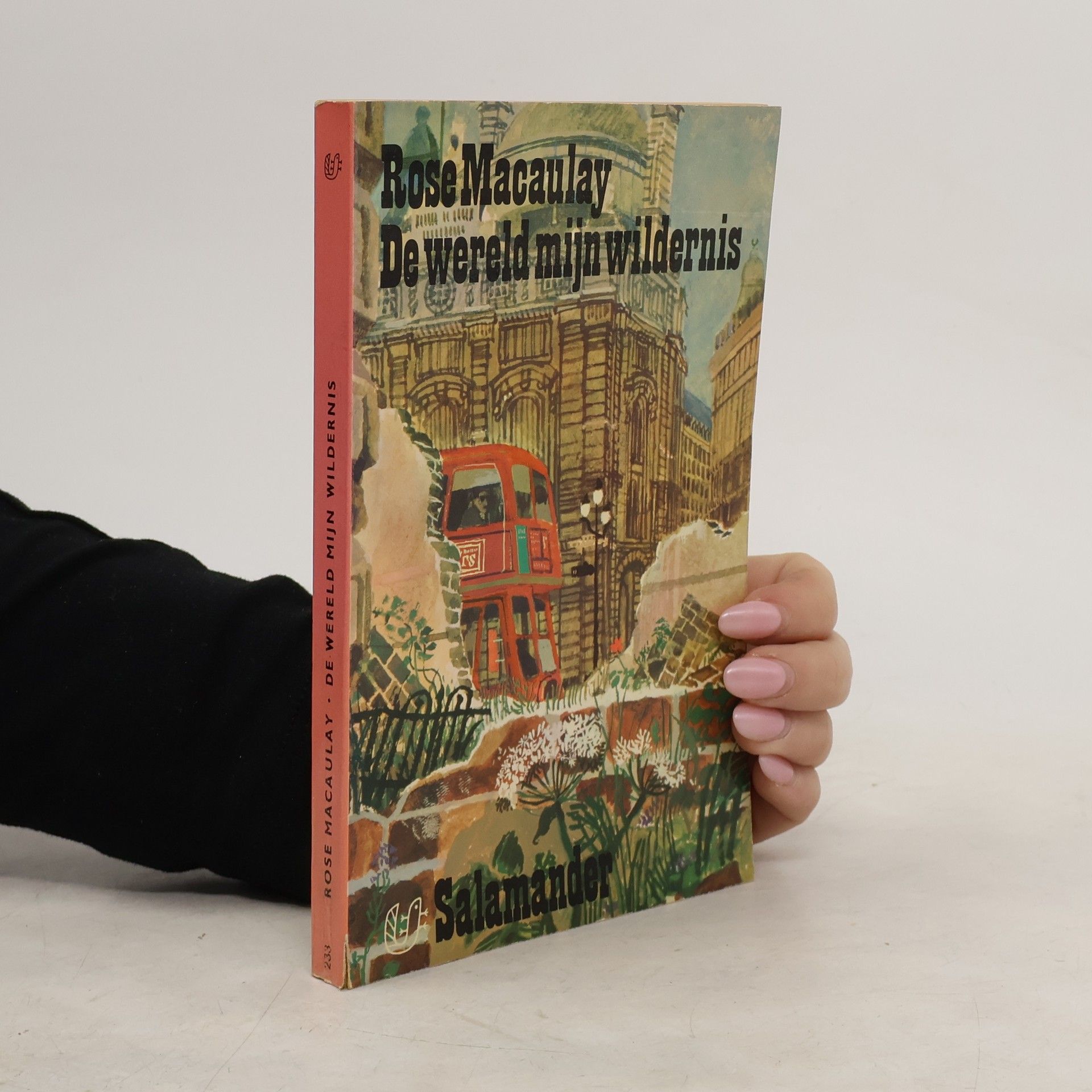Rose Macaulay Boeken
Emilie Rose Macaulay was een schrijfster wiens werk "ons tijdperk siert". Haar vroege romans staan vol herinneringen aan Italië, waar ze een deel van haar kindertijd doorbracht. Ze begon haar schrijversloopbaan, die vijftig jaar overspande, in Engeland en stortte zich al snel in het Londense literaire leven. Haar stijl is onderscheidend en haar werk uniek, wat lezers een opmerkelijke literaire ervaring biedt.







Potterism is about the Potter newspaper empire, and the ways in which journalists struggled to balance the truth and what would sell, during the First World War and into the 1920s. When Jane and Johnny Potter are at Oxford they learn to despise their father's popular newspapers, though they still end up working for the family business.
From the author of the beloved novel The Towers of Trebizond, a book about Portugal that is part travel-ogue, part history and wholly personal.
Set against the backdrop of a journey through Turkey, the narrative explores the spiritual evolution of a small Anglo-Catholic group traveling by camel. The protagonist's experiences mirror the author's own evolving beliefs, making it a profound spiritual autobiography. Influenced by Virginia Woolf, Macaulay's literary contributions extend beyond novels to include biographies and travelogues, showcasing her diverse talents. Her body of work includes notable titles like Abbots Verney, The Lee Shore, and The World My Wilderness, highlighting her significant impact on English literature.
All Rose Macaulay's anti-war writing, collected together in one fascinating and thought-provoking volume. Her novel Non-Combatants and Others (1916), her journalism for The Spectator, Time & Tide, The Listener and other magazines from the mid-1930s to the end of the Second World War, and her only wartime short story, `Miss Anstruther's Letters'.
Personal Pleasures is an anthology of 80 short essays (some of them very short) about the things she enjoyed most in life. Her subjects include: - Bed (Getting Into It) - Booksellers Catalogues - Christmas Morning - Driving a Car - Flattery - Heresies - Not Going to Parties - Shopping Abroad - Writing While each essay can be read on its own as a short dose of delicious writing, the collection is also an autobiographical selection, revealing glimpses of Rose's own life, and making us laugh helplessly with her inimitable humour.
Rose Macaulay's novel, first published in 1928, offers a sharp and witty commentary on how we twist our identities to fit, delivered in an intelligent and innovative style.
The World My Wilderness
- 256bladzijden
- 9 uur lezen
Macaulay's most sophisticated novel explores the spiritual dilemmas of the postwar world. One of the most evocative novels of London immediately after the Second World War.
"May I ask your daughter's age?" "Nan is thirty-three." "A dangerous age." Rose Macaulay takes a lively and perceptive look at three generations of women within the same family and the 'dangers' faced at each of those stages in life. The book opens with Neville celebrating her 43rd birthday and contemplating middle age now that her children are grown. Her mother, in her sixties, seeks answers to her melancholy in Freudianism. Her sister, Nan, 33, a writer who has hitherto led a single and carefree life in London, experiences the loss of love and with it her plan for the future. And Neville's principled daughter Gerda, who is determined not to follow her mother's generation into the institute of marriage, finds herself at an impasse with the man she loves. British Library Women Writers 1920's. Part of a curated collection of forgotten works by early to mid-century women writers, the British Library Women Writers series highlights the best middlebrow fiction from the 1910s to the 1960s, offering escapism, popular appeal, and plenty of period detail to amuse, surprise, and inform.
An early novel by Rose Macaulay about a government program of compulsory selective breeding in a dystopian future England. In a near-future England, a new government entity—the Ministry of Brains—attempts to stave off idiocracy through a program of compulsory selective breeding. Kitty Grammont, who shares author Rose Macaulay’s own ambivalent attitude, gets involved in the Ministry’s propaganda efforts, which the novel details with an entertaining thoroughness. (The alphabetical caste system dreamed up by Macaulay for her nightmare world would directly influence Aldous Huxley’s 1932 dystopia Brave New World.) But when Kitty falls in love with the Minister for Brains, a man whose genetic shortcomings make a union with her impossible, their illicit affair threatens to topple the government. Because it ridiculed wartime bureaucracy, the planned 1918 publication of What Not was delayed until after the end of World War I.
